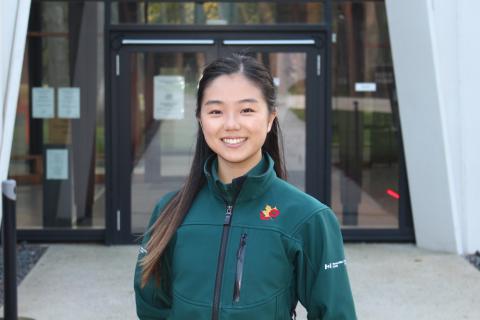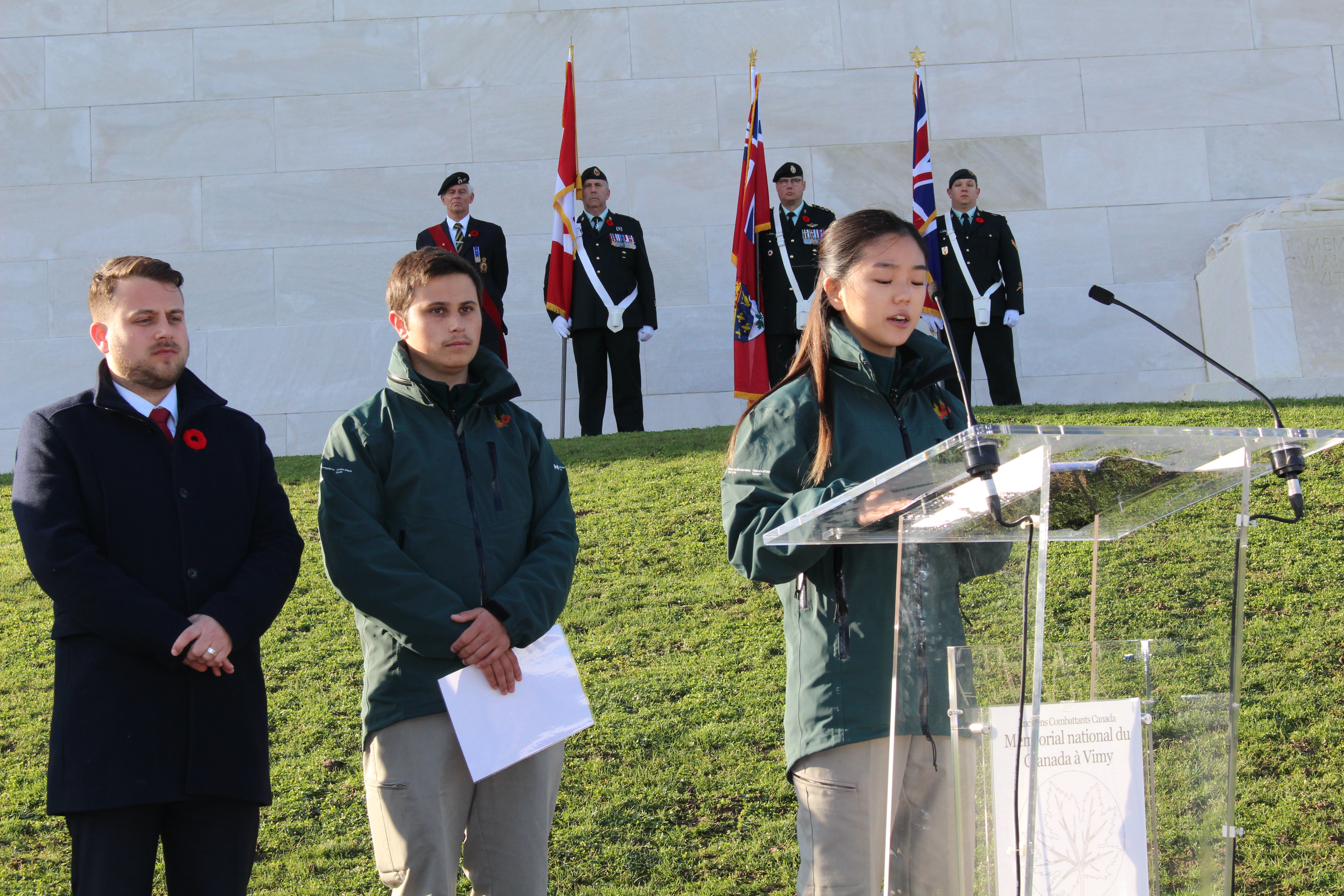
“For Remembrance Day, I had the honour of participating in the official ceremonies at the Beaumont Hamel Newfoundland Memorial and the Canadian National Vimy Memorial. These are Canada’s only two national historic sites outside of its borders. An incredible amount of dedication goes into preserving these memorials, and rightly so. They were established to honour the hundreds of thousands of Canadians and Newfoundlanders who served in the First World War and stand as a national symbol for Canada's contributions to all conflicts. After a very moving Veterans’ Week, I felt compelled to write a little bit about the reflections that have been forming in my mind during the first 3 months of this co-op term.
When I first started my position as a Student Guide, to be quite honest, I felt a nagging sensation of unease and I eventually realized what I was struggling with was a case of not knowing if I belonged. How could I fully comprehend and convey the sorrow of Canadians without having personally shared in the collective pain of those whose own family members fought in the war? Being of South Korean descent, I knew that no one in my family was implicated in the First World War nor have I known any relatives who served in the military. As a result, I felt that I was less qualified to represent Canada at its national war memorials. However, as time went on, I learned that this is not true, in fact I could not be more wrong.
“Lastly, as part of Canada’s youth, I have the responsibility to share the stories of our Veterans with future generations, especially following the 100 year mark of the First World War.”
Here are some of the things I have discovered so far: Firstly, lessons learned from war are to be learned universally—no matter where you are from. Although I do not have relatives to help me understand these experiences through personal anecdotes, I can take the initiative to educate myself and recognize the sacrifices made by these soldiers. Secondly, I learned I need to reflect on my own privilege as a second generation Canadian-Korean from the late 20th century. The Canada I live in today draws its identity from various things, one of which is undoubtedly this enormous world-wide conflict. Lastly, as part of Canada’s youth, I have the responsibility to share the stories of our Veterans with future generations, especially following the 100 year mark of the First World War. We must continue to preserve their memories so that we do not forget the lessons we learned from such horrific events.
“However, after months of pondering whilst walking on the Vimy monument and breathing in air I know is free thanks to those who made the ultimate sacrifice, I have never felt more Canadian than I do now.”
Overall, this experience has been life-changing. When I arrived in late August, my spirit was quieter and I was struggling to embrace my cultural identities, wondering how I fit into this mosaic of history. However, after months of pondering whilst walking on the Vimy monument and breathing in air I know is free thanks to those who made the ultimate sacrifice, I have never felt more Canadian than I do now.
In the photo below, I am reading the personal account of Second World War Royal Canadian Navy Veteran, Donald McIntosh during the Remembrance Day Ceremony at Vimy. I encourage all readers to do a quick search and take a moment to read his chilling description of a tragic day during the Battle of the Atlantic.”
Hannah Yang is this week’s Face of Freedom, an example of a new generation of Canadians who continue to commemorate and honour the sacrifices of Canadian Veterans, both past and present. The actions of those Veterans have allowed us to lead the life we do today – strong and free.
